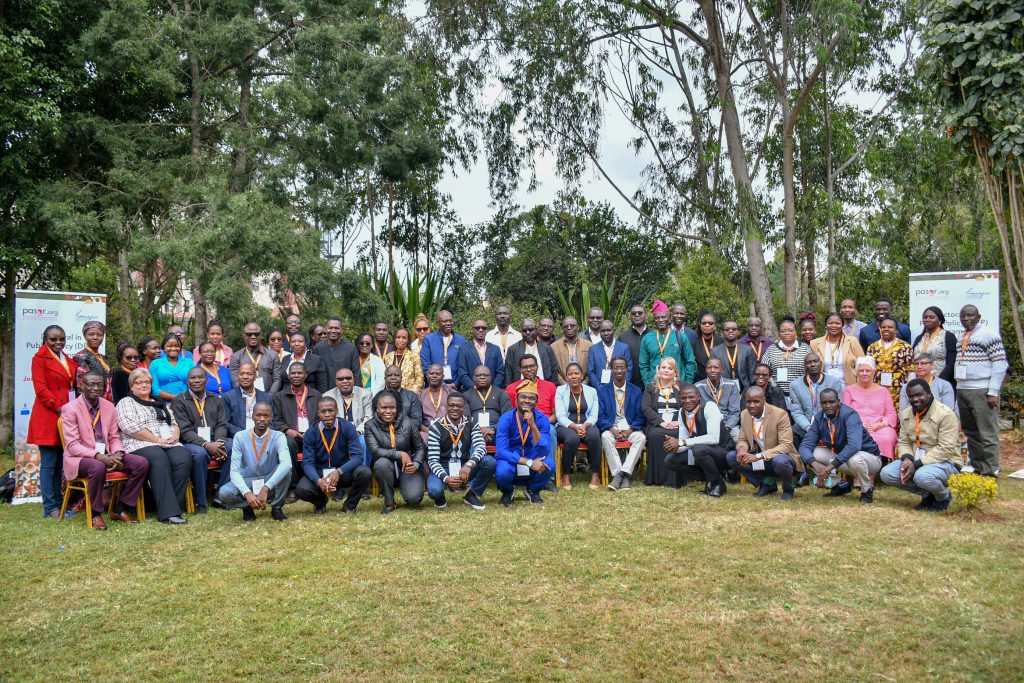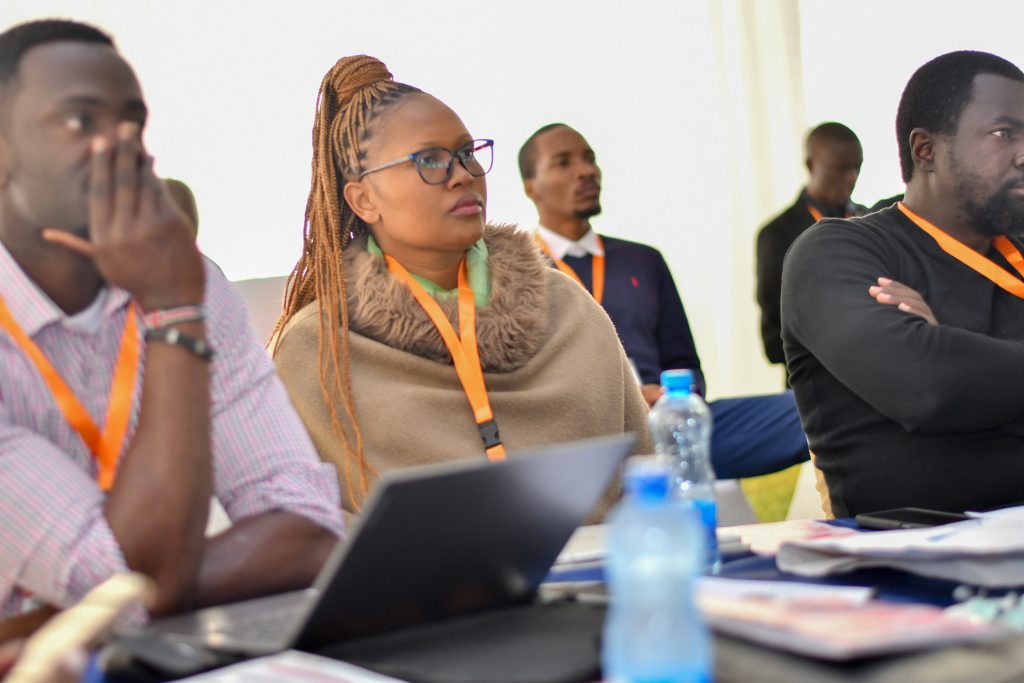Contact Info
- 6th Floor, I & M Building 2nd Ngong Avenue, Upper Hill
- +254 (0)20 2985000; +254 (0)729 111031 / +254 (0)731 000065
- info@pasgr.org
- Office Hrs: Today 9.00am to 6.00pm
The Partnership for African Social and Governance Research (PASGR), whose mission is to “advance research excellence for governance and public policy in Africa”, recognizes the central role universities play in supporting knowledge production for economic and social transformation of any society. This is mainly achieved through doctorate degrees as they play a vital role in generating and sustaining the pool of research and teaching staff within universities. This underscores PASGR’s commitment to form strategic partnerships with universities with the goal of contributing towards building the next generation of public policy leaders and researchers in Africa.
The importance of this commitment lies within the fact that the African universities still struggle with self-generative capacity which affects their ability to make a substantial contribution towards new knowledge generation. The average enrolment into university is still very low at 17 percent compared to a global of 48 percent according to UNESCO statistics (2017). A report by the British Council and DAAD (2018) observed that despite there being substantial growth in the number of PhD programmes and enrolment over the last ten years, the proportion of PhD enrolment against the overall student population is still relatively low. For example, in Ghana, Kenya and South Africa, this is below 2% while Ethiopia’s is slightly higher at 7.8%. The report further noted that there is a shortage of PhD-qualified staff in these universities where the proportion against the overall staff ranges from 8% to 43%.
The COVID 19 pandemic also introduced an extra burden to the previous need for strengthening PhD production on the continent. Research recently concluded by the PASGR (2023) revealed that only 7% of postgraduate students surveyed in Kenyan universities were able to attend scheduled classes. This research further established that even when universities transited learning to online, inability to fully fund the access to internet data bundles and appropriate gadgets like laptops denied postgraduate students access to quality learning. Mawazo Institute (2020)’s survey showed that 73% of postgraduate researchers suspended their research work in the field and laboratories during the pandemic. The pandemic also called for new digital oriented methodological skills for remote data collection that most university students and lecturers were not conversant with.

Against this background, there is need to continue to broaden and deepen the pool of emerging scholars in the African universities, while at the same time creating an enabling environment for postgraduate studies and research to thrive.
The collaborative Doctoral in Public Policy (DPP) programme started in 2019 by PASGR in partnership with the University of Nairobi, University of Ibadan and University of Pretoria is one of the initiatives that respond to the above challenge. With the support from the Carnegie Corporation of New York, PASGR administers a fellowship programme that is organized around different activities that include direct scholarships in form of tuition fees, subsistence allowance and research grants; and network strengthening activities delivered in form of Joint Annual Academic seminars (JAAS).
Since 2020, PASGR has been facilitating JAAS in collaboration with partner universities. Initially held virtually due to COVID-19 lockdowns, the first physical JAAS took place last year in Nairobi, Kenya, bringing together sponsored students and their lecturers. JAAS provides a platform for fellowship beneficiaries and their supervisors to convene for capacity strengthening and networking, reducing isolation among fellows. These seminars offer a safe space for students to present their research plans and progress, receiving constructive feedback and advice from peers and supervisors. Additionally, JAAS facilitates networking among supervisors across the partnership, enhancing their research and supervision capacity. Based on lessons learned from the shift to online learning, digital technologies for research and PhD support have become a key component of JAAS.

The second physical Joint Annual Academic Seminar (JAAS) is scheduled to take place from August 12-14, 2024, at Lukenya Getaway in Athi River, Kenya. This event will bring together over 60 Doctoral Public Policy (DPP) students and their supervisors to engage, network, and participate in a variety of capacity-strengthening activities. The symposium will feature combined plenary sessions for both students and supervisors, as well as tailored group sessions for each respective group. Students will have the opportunity to present their work-in-progress through poster presentations, and invited guests will add value to the discussions. To facilitate peer learning and cohort building, informal networking sessions have been integrated into the programme.
Objectives and Expected Outcomes:
The upcoming JAAS aims to achieve the following objectives:
– Foster a networking platform for students and supervisors across the partnership.
– Provide a conducive environment for students to present their research plans and receive constructive feedback.
– Offer capacity strengthening opportunities in research methods and PhD supervision.
– Inspire and provide practical insights to enhance PhD completion rates.
The long-term outcome of JAAS is to cultivate a vibrant community of Public Policy researchers and practitioners with a self-generative capacity for producing successive pools of scholars. Intermediate outcomes include the formation of strong DPP scholar cohorts, improved completion rates, enhanced research capacity, collaborative projects, and enhanced supervision skills among supervisors.
Through initiatives such as the DPP programme and the JAAS, the Partnership for African Social and Governance Research (PASGR) continues to address the critical need for strengthening research capacity and postgraduate education in African universities. These efforts aim to foster the development of the next generation of public policy leaders and researchers.

A4EA AAU advanced research design African universities agriculture Applied Quantitative Methods APSP ARD CABE call for applications cash transfers COVID-19 employment energy EOI Featured higher education IDS INCLUDE Job opportunity LEAP Africa MMRC MRPP opportunities opportunity PAMOJA TRUST partnerships PASGR PDT pedagogy PedaL press release professional development and training professional training public policy Research research methods scholarships social protection Social sciences University of Ibadan University of Pretoria utafiti sera vacancy Youth employment

6th Floor, I & M Building
2nd Ngong Avenue, Upper Hill
P.O. Box 76418-00508
Nairobi, Kenya
Email: info@pasgr.org
Tel: +254 (0)20 2985000;
+254 (0)729 111031 / +254 (0)731 000065
Legal counsel provided by Hurwit & Associates and Muthoga Gaturu & Co. Advocates